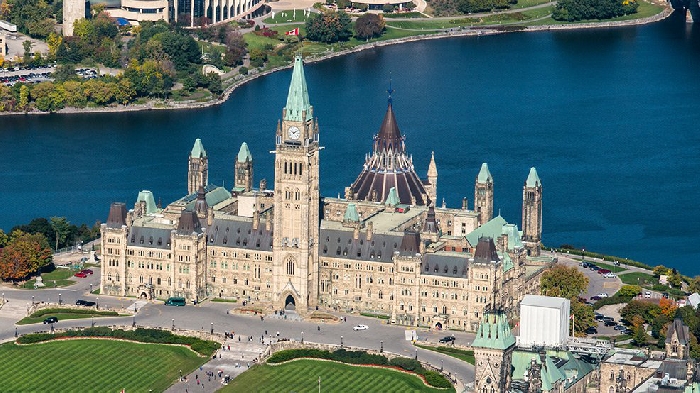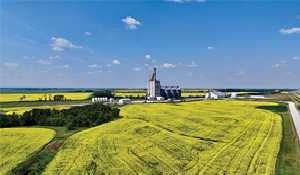Feds unveil plans for carbon tax
October 24, 2018, 6:06 am


The federal Liberal government announced details today of its plan to slap a carbon tax on fuels in provinces and territories with no carbon tax of their own, but will issue rebates to families to offset some of the cost.
Trudeau said he believes the added cost on fuels will tamp down carbon-intensive consumption, reduce emissions and help curb pollution.
"Starting next year, it will no longer be free to pollute anywhere in Canada. And we're also going to help Canadians adjust to this new reality."
Under the terms of the national climate framework, a deal agreed to by most of the provinces and the federal government some two years ago, Ottawa will levy a tax of $20 a tonne of greenhouse gas emissions starting in 2019, rising by $10 each year to $50 a tonne by 2022.
According to background documents supplied by the government, the $20-per-tonne carbon tax will result in an approximate cost increase of 4.42 cents a litre for gasoline, 3.91 cents per cubic metre for natural gas and 3.10 cents a litre for propane.
Consumers will not pay the tax directly to the federal government, but rather, Ottawa will levy the tax on fuel and production and distribution companies — for example, natural gas providers like SaskEnergy — who will in turn pass on those costs to customers.
This federal backstop will apply in provinces that do not have climate pricing plans of their own that meet federal standards: Saskatchewan, Manitoba, Ontario and New Brunswick, beginning in April 2019, but also Yukon and Nunavut as of July 2019.
Canadian Taxpayers Federation (CTF) Federal Director Aaron Wudrick expressed opposition to the federal plan this morning.
“Today’s announcement shows that the Prime Minister is choosing to ignore growing opposition to his ill-advised carbon tax," he said. :Trying to buy Canadians off by sending them cheques merely shows that he already knows how unpopular his new tax will be. Imposing a new tax is not how you save Canadians money. Canadians understand that climate change is a global issue and that we should not be punishing ourselves with a new tax that will have no impact on global carbon emissions.”
The Saskatchewan Chamber of Commerce is disappointed that the federal government is moving forward with the imposition of a carbon tax on the province. “Businesses do not in any way benefit from new taxes and it is often difficult to pass new costs on to their customers,” said CEO Steve McLellan.
The Liberal government will offer direct rebates to taxpayers
A federal official estimated 70 per cent of families in these provinces will receive more in climate payments than they will pay each year in new carbon taxes.
People in affected provinces will simply indicate on their tax returns if they are eligible for the payment.
The Canada Revenue Agency (CRA) will then ensure people are adequately compensated. Thus, the payments will be made annually and will reflect about a year's worth of emissions.
People average household in these provinces stand to gain:
Ontario: about $300 a year.
New Brunswick: $248.
Manitoba: $336.
Saskatchewan: $598.
These payments will rise in lockstep with the annual hike in the carbon tax.
Payments for people in small communities and rural areas will include a 10 per cent supplement, government officials said, "in recognition of their specific needs."



































